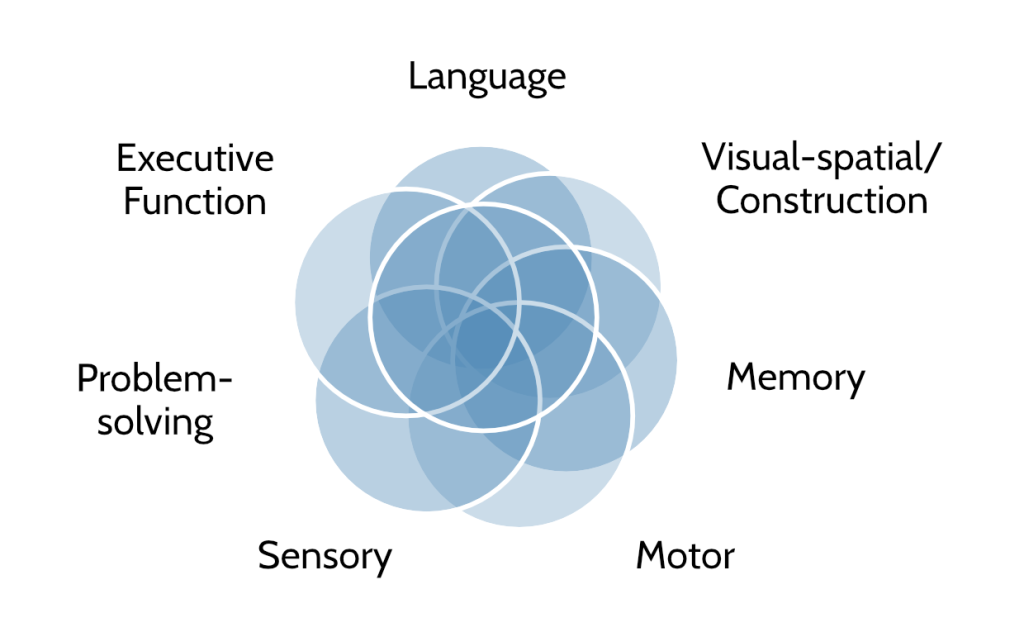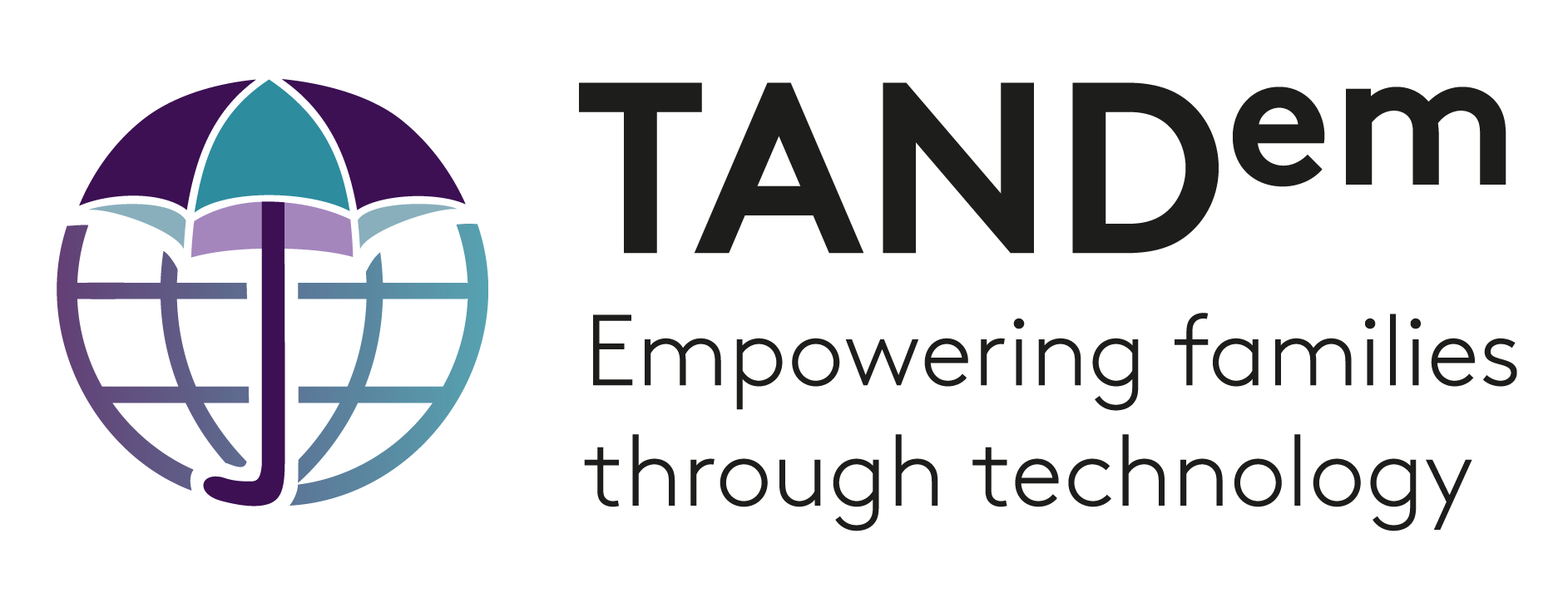Neuropsychological Cluster
Home > TAND Clusters > Neuropsychological > What to seek
What to seek
Neuropsychological testing or evaluation is the first step in addressing neuropsychological difficulties.
For infants and toddlers a developmental evaluation should be considered, this would include an evaluation of speech and language development, gross and fine motor skills, and will likely lead to an intervention plan for therapies as needed.
For school-age children a neuropsychological evaluation should be done, this may include any individual testing done at school.
For adults a neuropsychological evaluation is recommended.
What is tested in a neuropsychological evaluation?
Neuropsychological skills include a range of brain functions that help us learn and adapt in our everyday lives. Each of these are listed and defined below. A video on executive skills is also available in the resource panel.


Language: words and symbols, spoken and written, that we use to communicate with each other, common to members of a cultural group.
Visual-spatial/constructional skills: ability to understand spatial relationships, drawing/copying, building.
Memory: recalling previously learned information, recognising information previously seen or heard.
Motor skills: fine motor (speed and coordination) and gross motor (walking, running, climbing).
Sensory: seeing, hearing, feeling, smelling, tasting.
Problem-solving: using flexible thinking in novel situations, testing possible solutions until the correct answer is found.
Executive function:
- Inhibition: the ability to prevent oneself from engaging in behaviour that is inappropriate in a given situation, such as speaking loudly in a library.
- Self-monitoring: keeping track of one’s own behaviour.
- Task-monitoring: keeping track of one’s task performance and progress.
- Shifting: the ability to move, or shift, from one activity or thought to another as needed or as appropriate.
- Initiation: the ability to get started on a task or activity when necessary, to ‘get going’.
- Planning/Organisation: the ability to schedule, track, and carry out activities to achieve a goal, such as tasks, assignments, chores and projects.
- Working memory: the ability to hold information in mind temporarily so that it can be used to carry out cognitive tasks.
Executive Function: Skills for Life and Learning
[developingchild.harvard.edu]
What is involved in a neuropsychological evaluation?
Neuropsychological evaluation involves the administration of a set of tests and procedures by a trained examiner. These are hands-on activities that include answering questions and some paper-and-pencil and computer work. For children, parents will be asked to fill out behavioural questionnaires.
Parents, children, and adult patients will be interviewed about developmental and medical history and the neuropsychologist will make behavioural observations. Many neuropsychologists work with technicians who administer and score the tests. The neuropsychologist will review the findings, interpretation, and recommendations with the patient, family, and treating physician or treatment team.
How and where to obtain a neuropsychological evaluation?
Start with your primary care provider:
- Paediatrician
- Family physician
- Internist
Paediatric Clinical Neuropsychologists:
- Referral through a paediatrician or child neurologist affiliated to a children’s hospital or university hospital.
- Children’s hospitals, university hospitals.
- AACN Directory (theaacn.org) – if you live in the USA.
Adult Clinical Neuropsychologists:
- University hospitals, teaching hospitals.
- AACN Directory (theaacn.org) – if you live in the USA.
What other types of evaluations are helpful?
Psychoeducational evaluation: this is usually done in the school setting, it focuses on intelligence and academic achievement. The goal is classification for special education and developing goals for school programming.
ADHD evaluation: this is usually done by a paediatrician, psychologist, or child psychiatrist, and there is not a significant role for cognitive testing. Rather, an evaluation for ADHD relies on history and standardised behavioural ratings made in two settings, usually home and school for children, or for adults, home and work.
Autism evaluation: this is usually done by a developmental paediatrician, psychologist, or psychiatrist; teams might include speech therapists and others. Specialised measures include the Autism Diagnostic Observation Schedule-2 (ADOS-2), and the Autism Diagnostic Interview-Revised (ADI-R). The developmental history is also very important.
Overactive/Impulsive Cluster: What to Do
[tandtoolkit.org]
Which other professionals could be consulted if appropriate?
- Psychiatrists and child psychiatrists
- Neurologists and paediatric neurologists
- Speech and language pathologists
- Educational psychologists
- Developmental paediatricians
- Developmental psychologists
- Occupational therapists



